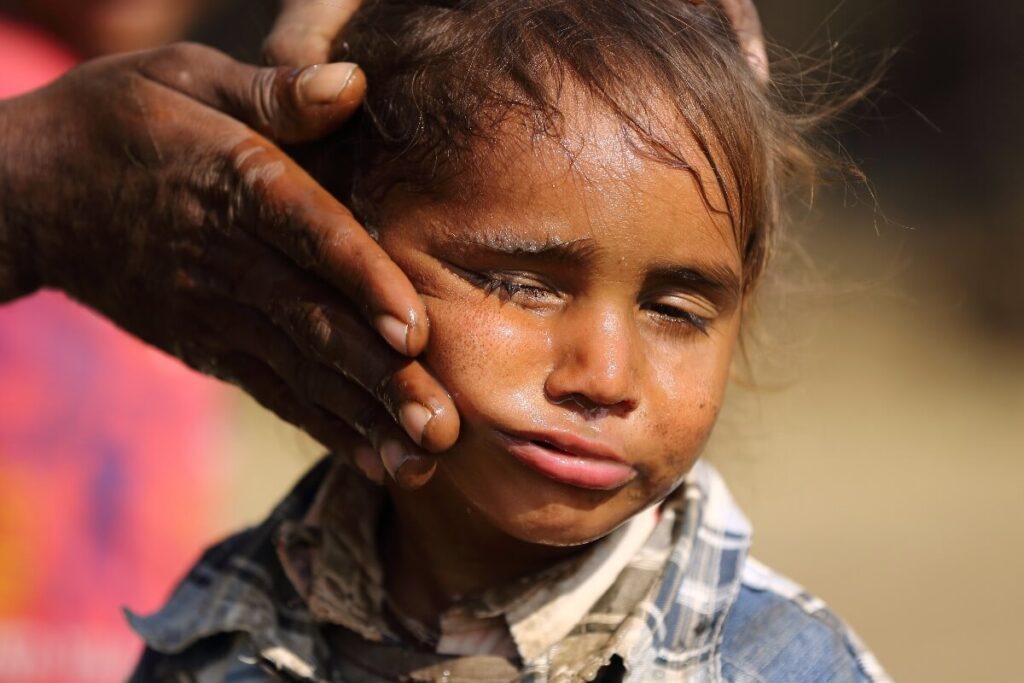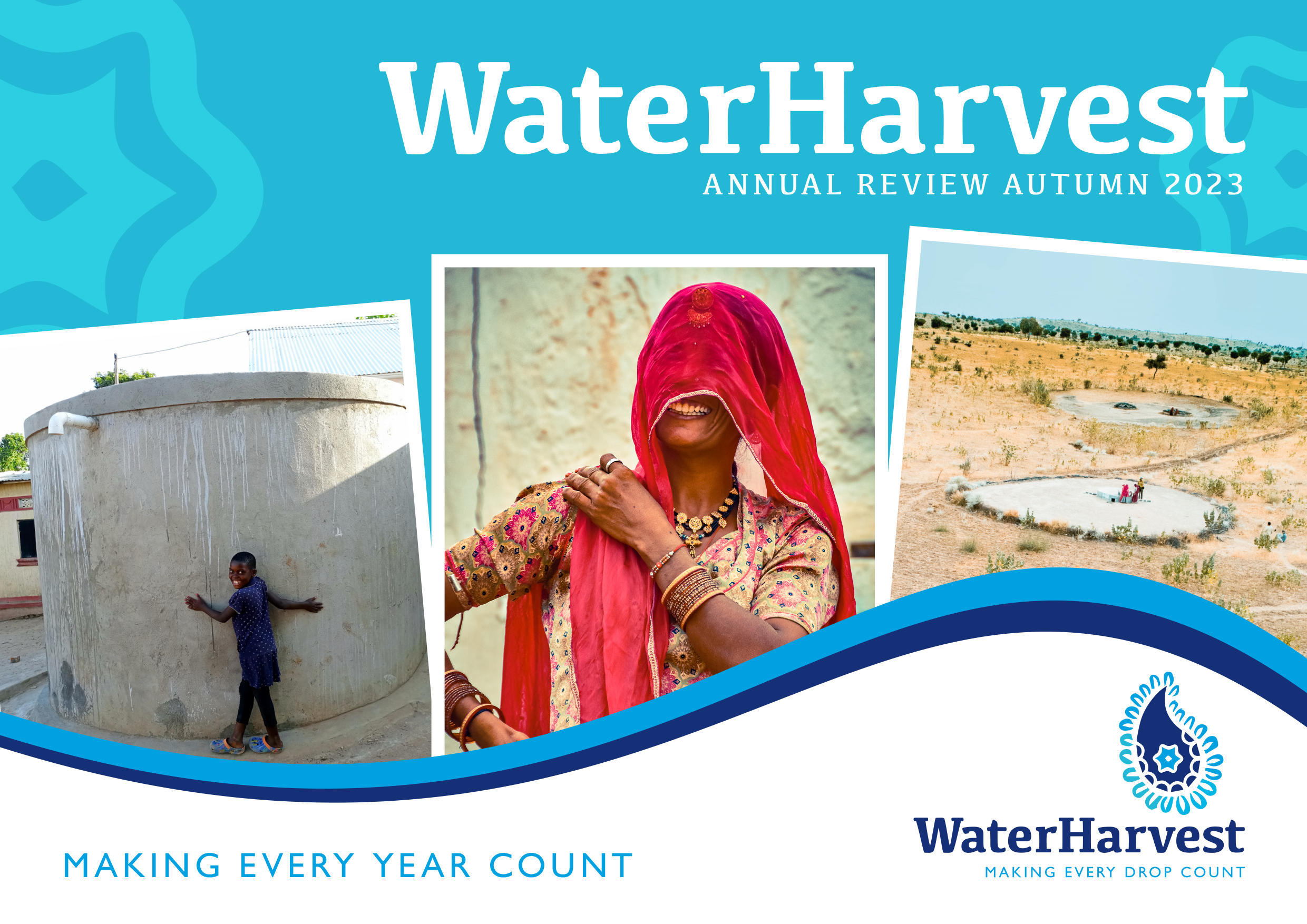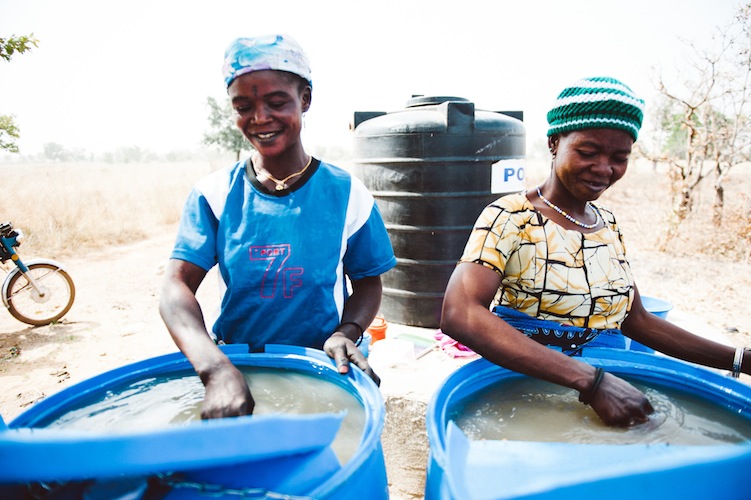The impact from COVID 19 is on livelihoods, not just lives.
WaterHarvest’s India office team, whilst working from home, is in touch with our partners to get information from the project villages and regions in Rajasthan and Gujarat. According to our partners, the COVID 19 lockdown has really affected the lives of the poorest of poor and marginalized people, who are now facing really hard times. As shown in recent media news, millions of migrant workers travelling on foot to reach their villages from the cities continues. Our partner NGOs have been providing short term relief like food, shelter, or some basic hygiene kits.
According to partner NGOs, as a result of migrant workers continuously coming back to their native villages, family sizes have increased by around 20 to 25%. There is very little work available with factories, construction work and tourism all closed. Farmers are suffering on many fronts: the rain and hailstone that damaged some of the crops and many of the village vegetable markets have been closed. There is an understandable atmosphere of fear in the villages. People are not going out unless it is urgent. Doctors are discouraging people from coming to see them for routine visits. Daily commodities prices have gone up – often as much as 20- 30 % due to a lack of availability of produce, especially green vegetables and smoking items.
An increase in hand washing
Due to the Covid-19 outbreak and the increasing summer temperatures, the usage of usage of water has also increased. Many commercial establishments are closed due to the lockdown. But despite this, the consumption of water has increased in cities like Jodhpur, Jaipur and Udaipur. The threat of COVID 19 infection has resulted in residents using more water for hygiene and cleanliness purposes. Some of our partners are reporting an increase in handwashing, especially among the more educated families. One of our partners, TBS, has distributed over 10,000 bars of soap. While this is just a small change and extremely hard to accurately assess, we are conscious that the increase in basic hygiene in some parts of Africa was of benefit in the ebola outbreak.

How we are helping
We have continued to support our community and field workers. These people represent the backbone of our organisation and are vital links with the communities. Many of them have been involved in the food distribution programmes and continue to reinforce our work on sanitation and hygiene.
Most of our programme work has been paused during this outbreak – either due to the need for social distancing or because the materials and parts are not available due to the supply chains. However, some of our work can continue, for example our chauka programme has continued throughout this period. We are introducing a new programme called Water for Work as part of our COVID 19 appeal. This will include small works such as well repairs and pond desilting that can still be done . The image below shows a pond being desilted.

Waiting for the monsoon
The India Meteorological department North Western side of India will receive monsoon rain by end June/early July. The government is forecasting a ‘good’ monsoon this year. Typically, the monsoon arrives at the end of June/early July in the south -east of Rajasthan and reaching Kutch in Gujarat and the further western side of Rajasthan around the last week of July/early August. The 2019 monsoon saw a very high level of rain and all our rainwater harvesting structures were filled in Rajasthan, while a poorer monsoon in Gujarat resulted in less rain. With the current emphasis on hygiene and especially hand washing we are seeing an increase in the demand for water. Clearly, if the monsoon does not fill the tanks, the ability for the communities to protect themselves from COVID 19 will be compromised.
Adjusting our work
The current lockdown is in place until 31st May 2020, although with some easing of the restrictions. During this time and over the summer months, we will do our Water for Work programme and also continue to support by our partners. Because of the heat and the rains during the monsoon, very little work is done in the rainwater harvesting programmes during this time. However, after October will be our busy months. We are reorganising our work so that we can resume our programmes whilst obeying social distancing measures which may still be in place after the summer and monsoon. All our work is done in remote, rural communities and much of it can be done whilst complying with social distancing. For example, building taankas, roof top rain water harvesting for marginalized communities . Our sanitation and hygiene training normally takes places in large groups. However, we are looking at doing this in small groups. The need for our clean water and sanitation has been re-emphasized by this outbreak and we are working hard to ensure we can do as much as possible to help.




